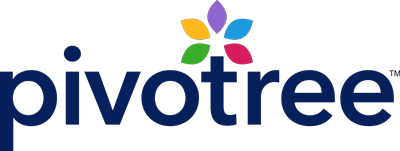We are continuing with our ‘Adapting to the New Reality’ video series where we are interviewing leaders from across various organizations asking them what they have been hearing from customers and partners in terms of how to navigate the new reality. Today, I have with me Derek Corrick, our General Manager of MDM, who will answer a series of questions and possibly shine some light on various ways how we can all navigate the new normal. (Transcript of the video interview below.)
My first question is what market trends have you been seeing amongst our client base all the way from manufacturers, distributors, and retailers? Is there a specific trend we’re seeing now that it has been almost six weeks that we’ve been in quarantine or are you seeing different patterns?
I think that as far as trends go, obviously, we’re seeing a lot of job loss, which is leading to reduced workforces, which means that things that companies were doing to put themselves in a better competitive position have been put on hold. The irony is that many of these projects that are being put on hold are having to do with getting online and having a better online presence and a better digital customer experience.
So, it’s an unvirtuous cycle of not having enough resources to complete these critical projects while business is softening, it creates a lot of risks. Digital capability is what is required to survive in a situation like this. People are starting to realize that this may not be an isolated thing and COVID could come back in the fall or other things could occur, so the digital capability is becoming more and more competitive. It’s being recognized as more and more imperative, but companies right now are struggling to corral the resources to create that kind of capability.
Being a data expert do you have any recommendations on how organizations can leverage data with different various disruptions like supply chain, inventory management, and order fulfillment. They’re all these disruptions now, how can data help?
Data is imperative to the whole thing, so obviously I think how data helps us is pretty clear. I think it’s the management of data that becomes the question, when you think about traditional organizations or how things are set up traditionally each function is responsible for managing its own information. So you have the supply chain people and they manage product data, customer data and vendor data for their own purposes, you’ve got the retail side and you have the brick and mortar side that’s doing the same thing, you’ve got the eCommerce side, you’ve got marketing and all the rest.
One of the things that we find is that the data management effort within an entire organization can be very time-consuming and very expensive and what you often get is inconsistencies across systems and inconsistencies across business functions. So, for me, thinking about what is the information that the enterprise actually needs to run and making sure that’s being managed as an enterprise asset and then being fed out to the functions.
When you think about it, supply chain is a function, buying is a function, selling is a function and we sell across channels. So, is that information readily available and are we gathering and maintaining it in a cost-effective way? If I have a disruption in my supply chain, will data be a readily available asset or is going to be something that I’m going to struggle to pull together. If it’s a readily available asset it obviously reduces friction in terms of how I address some of the other challenges. But, if I’m fighting with data the same way I’m fighting with other factors that makes the job that much harder and then, as I’m trying to do analytics and understand where I’m at, I’m a bit lost and don’t know who to trust, I don’t know where to turn and I hope I’m making the right decisions. So that’s when data really becomes key so that you thrive in good times and you’re able to manage your business in hard times.
When it comes to decision-making in times of crisis, prioritizing different decisions and making the right decisions is critical. Do you have any recommendations to offer to other leaders on how to go about making those right decisions so that they can prioritize correctly?
Well, I think it’s kind of funny because pre-COVID and post-COVID, I think, are really different things. If I think about our own business, we were prioritizing growth, we were thinking about known investor value and free cash flow and our whole go to market strategy. We had a different kind of focus, we were looking at potential growth for acquisition and all kinds of other things that were really on our minds.
Once COVID hit we started to see the impact on our customers, we started to understand the impact on our people and we started to understand how our priorities shifted, so I think that’s what worked for us. We understand our mission which is to help our customers and the most critical points of their business where they’re really looking to succeed. It’s taking care of our people, it’s making sure that we’re good corporate citizens and providing relevant solutions to the market and if the market shifts and the solutions change then we adapt to that because we recognize that we’re in a big interconnected world and the way that things look today is not going to look that way tomorrow.
So I think it’s having your core set of values, knowing what you’re trying to accomplish, making sure you’re always clear on the outcomes you’re looking for like growth and your corporate responsibility to protect lives and livelihoods, then the actions that you take start to drive off of your values and drive off of your business priorities and then ultimately lead to making the right choices.
So, it sounds like Pivotree leadership has taken the right approach in terms of going back to the values and re-evaluating what the company stands for in times like these, where there is a lot of fear and panic.
What do you think are the most common mistakes that leaders make during times of crisis or what mistakes do you think Pivotree has made that you could share and that we could have avoided?
One of the things that I see people sometimes do is get overly focused on the problem itself. When we first started, we had a very big focus on COVID and it seemed like every meeting that we went to, for three weeks, that was the only topic. I know there’s a balance between dealing with the crisis, it’s a problem, and then we start looking for our outlet, this is how we’re managing the crisis, now that’s in a box. There are things that we have to do to take care of our customers and there are the things that we have to do to take care of our people. We’ve had some slowdown in work since the whole thing started, people are postponing projects and having other things to do, so this left us with some resourcing bandwidth.
So what we’ve decided to do is put a focus on Corporate projects that have been on the back burner for a while, so we decided to pull those forward and start making investments in the future. I think one of the things that people often do is retrench and say, “Hey, I’m going to just sit and do nothing” and wait the thing out, really focus on it, and then we kind of get paralyzed. For us, I think that would pose a risk, so we started with really focusing on it but then we did make that shift to say okay there is going to be a post-COVID world and we’re in the middle of it. Now, how do we get focused on our customers and not be so internally focused? Now, how do we get ourselves stable enough that we can externally focus and start figuring out how we’re going to help our customers? How do we not get so wrapped up in what’s happening right now that we lose sight of the fact that there’s going to be an after now and how are we going to put ourselves in the best position to deal with that?
There are investments that we can be making now that put us in a better position going forward and those are some of the things that we’ve done and so far, they’ve been helpful for us. Obviously, this thing is not anywhere near over so, as we go through this period of time we have taken measures, we may have to take further measures, but hope that we won’t. Those are all laid out and we know what we have to do, meanwhile, we’re turning our attention to taking care of our customers and focusing on the future.
We are at the end of our interview today. My last question for you is a fun question. If you were to be born with a superpower, what would that be?
I have this discussion with my children frequently. I probably would go with super strength. Actually, I always thought Aqua Man was pretty cool and I like to scuba dive. So being able to swim underwater without a scuba apparatus, I’ll take that one.
Well, thank you, Derek, thank you so much. I hope our viewers found this conversation insightful. I definitely did, especially the investment angle, I think that was really great. I love how we keep going to the set of values that Pivotree has developed that are guiding us through difficult decision-making through these times. Again, thank you so much for watching guys and we’ll see you in our next episode. Thank you, Derek, it was nice having you, bye.
Our focus at Pivotree is to help clients build a foundation that can quickly respond and adapt, no matter where the business or economic climate takes us next. And this is exactly what we’ll continue doing during these unpredictable times. To discuss how our team can help your organization today, contact us here and one of our experts will be in touch.
Check out Pivotree’s ‘The State of Digital Transformation’ report.
Digital transformation is no longer just a buzzword. It’s a necessary disruption that nearly every business must embrace. Unfortunately, there is no one-size-fits-all playbook – so, where do you start?
We decided to go straight to the source. We surveyed our B2B and B2C customers to ask what their digital transformation plans look like for the next three to five years, as well as the challenges that stand in their way. The results paint a picture of significant opportunity, as well as potential gaps, that every company must address.
This White Paper Report combines our research findings with insights into what transformation truly entails – plus, guidance from our data and digital mavens to ensure your company is on the right course.
To download the report, click here.

